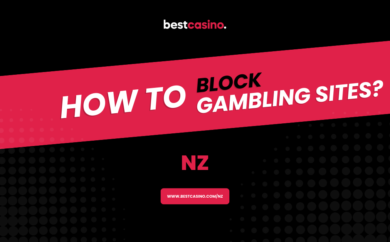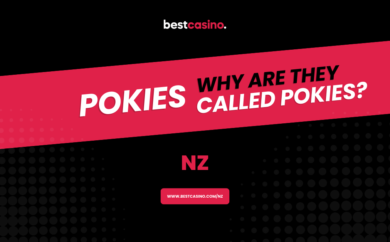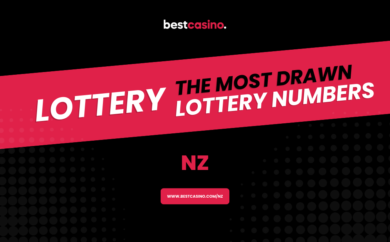Gambling licenses are of utmost importance because they contribute towards the security and legitimacy of the casino itself. That’s why when NZ players read casino reviews, they often see that one of the first features that are covered are the licenses themselves. There are quite a few things that you should know about them, which is why we’ll dive into the topic and help you get familiar.

Importance of Gambling Licenses
A gambling license represents an accreditation by a gambling regulator through which a certain online casino can operate legally in a certain region. All casino sites that possess a license are closely monitored by the regulator itself and they must meet the highest standards in terms of player protection, fair play, partnerships with payment providers, etc.
Furthermore, a license ensures that the operator will not only follow legal guidelines, but ethical guidelines as well. Last but not least, the agencies that issue these licenses act as moderators between players and operators if a dispute takes place.
During these times, regulating bodies assess the current situation and bring a decision based on the information they have.
Gambling Regulation in New Zealand
New Zealand is one of the fastest-growing markets for online gambling in the world. However, the country is in the grey area when it comes to online gambling regulation. The industry falls under the scope of the Department of Internal Affairs. There are two regulating agencies within the department – Lotto NZ and the New Zealand Racing Board (TAB). Lotto NZ regulates the lotteries in the country, while TAB is the sole NZ-based provider of online sports betting services.
The law that regulates the gambling industry as a whole is the Gambling Act of 2003. It has little to no information regarding online gambling because at the time when it was voted, online casinos weren’t nearly as popular as today. There’s no process of obtaining an online gambling license in the country as the law states that no other providers aside from Lotto NZ and TAB can be based in New Zealand and offer their services to Kiwi players .
However, the Gambling Act has no information on whether Kiwis can register at offshore sites and gamble. As such, the residents face no repercussions when they do so. This can be a bit tricky because if you do so, you’ll be at the “mercy” of the casino itself. NZ authorities cannot help you if a conflict arises.
Nevertheless, Kiwi players who are looking to gamble online search for operators that have the necessary license accreditations. They are looking for licenses from reputable international regulators such as the UKGC, MGA, Spelinspektionen, etc.
Major International Gambling Regulators
Not all international gambling regulators are legit. Some are more effective and thus, far more trustworthy. The two top-tier names in the global scene are the UK Gambling Commission and the Malta Gaming Authority.
UK Gambling Commission (UKGC)
UKGC is by far the strictest regulator of them all. As the name itself suggests, it’s in charge of regulating the British gambling market, which is the largest in the world. The UKGC was established in 2007, two years after the Gambling Act 2005. It’s in charge of licensing online casinos and making sure that they adhere to the laws. One of the licenses that it issues is an “operating” license.
There are three types under this category:
- Non-remote
- Remote
- Ancillary
Online casinos need a remote license in order to legally operate. The process of applying can be completed online. Those who apply need to pay an application fee. If they receive the license, they’ll have to pay the first annual fee within 30 days after the license is issued. The standard annual fee is then paid before the anniversary of the license. Last but not least, a maintenance fee is paid every 5 years. License holders must pay it 30 days before the 5-year period expires. One of the things that the UKGC is well-known for is its vigilance against those that don’t comply with the rules. Not even the most reputable operators are safe. Take bet365 as an example. In April 2024, the operator received a £582,120 (~NZ$1.2 million) fine for failing to comply with AML and social responsibility rules.
Malta Gaming Authority (MGA)
Next, we have the MGA, another well-known name in the iGaming world. You can also apply for a license via MGA online. To do so, you must create an account at the official website of the authority.
After that, you choose the “New Application” menu and start filling out all the details. The license application fee is €5,000 (~NZ$8,800). Some of the details that you need to fill out include:
- Entity name
- Registration number
- Phone number
- Trade name
MGA also offers a few separate licenses. The first one is a gaming service license, issued to B2C operators. There’s also a B2B license for supplying materials of a game and a B2B license for supplying a software. Annual fees are around €10,000 (~NZ$17,700).
Last but not least, the type of license that you receive depends on the games that you offer:
- Type 1: games of chance played against the house and whose outcomes are generated by RNGs.
- Type 2: games of chance against the house whose outcomes are determined by events/competitions
- Type 3: games of chance where the house generates revenue via commissions
- Type 4: skill games that require higher supervision
MGA is vital to the iGaming world due to the fact that it’s very popular with operators who are looking to gain international licenses. That way, it opens up the market for them and allows them to prosper under the regulatory guidel
Other Major Regulators
A few other major regulators who are worth mentioning are the Gibraltar Licensing Authority, Curacao eGaming and the Alderney Gambling Control Commission. Gibraltar’s Licensing Authority is directly under the government’s supervision. Those that want to apply for a license must be based in Gibraltar and have a positive economic impact in the jurisdiction.
When applying for a license, the Licensing Authority inspects the applicant to understand its corporate structure.
Curacao eGaming is very popular because its representatives completely handle the process of obtaining a license. Applicants don’t have to be there. Once you apply, the representatives of this authority will create a company with a physical address in Curacao on your name.
Once you give them all the information about the business, they’ll apply for a license themselves. Of course, applicants need to pay several fees before obtaining a license. One of the best things about Curacao is that it doesn’t have multiple licenses – one license covers both casino and sports betting verticals.
Finally, the Alderney Gambling Control Commission was established in 2000. Online gambling licenses go under the name “eGambling licenses.” Interestingly enough, the fees of this commission are among the most expensive.
For example, the initial fee for new applicants is £17,500 (~NZ$36,500). Annual renewals cost £35,000 (~NZ$73,000) if the revenue of the applicant doesn’t exceed NZ$1 million. If it does, then the annual renewal costs £60,000 (~NZ$125,400).
How to Verify a Casino’s License
Every online casino that offers its services to NZ players must show all relevant information about the license (license number, registration number, operating company, address, etc.). To check these details, you can simply scroll to the bottom of the home page.
Usually, NZ casino sites feature these details in their footer. Of course, these details can always be fabricated, which is why you need to verify them. Simply visit the official website of the regulator. Then, search its database for either the online casino brand or the company that operates the casino.
If the information is valid, the license should pop up in the search results. If it doesn’t then it’s likely fraudulent. Other red flags about the casino itself can also point out that the site is a scam. The biggest indicator is bonuses and promotions that are too good to be true.
Often, scam casino sites attract players via false bonuses. They are either too rewarding or have T&Cs that are incredibly easy to meet. Maybe even both. So, if you spot this, then the platform is likely fraudulent.
Last but not least, if the casino doesn’t utilize the latest SSL encryption software, then you should stay away from it.

Conclusion
Gambling licenses are of utmost importance to every online casino. These accreditations show that the casino is legal and meets the laws and regulations. They are also safe sites that use RNGs to create a fair gaming environment.
Unlicensed sites can’t guarantee you the same level of security, which is why you should stay away from them. Hence, if you’re on the lookout for a casino site, the license should be the first feature that you check.
After you verify it, you can proceed to taking a look at the rest of the services of the casino – bonuses, games, payment methods, etc. If the site meets your preference, you are more than welcome to register and play.




